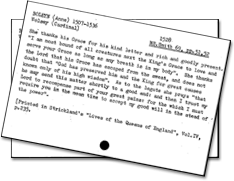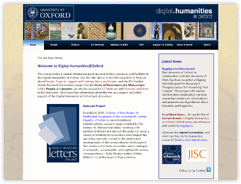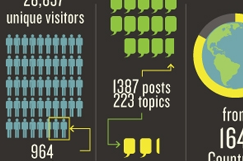 It’s an exciting time for friends and colleagues at Dublin’s Edward Worth Library – a collection of 4,500 books, left to Dr Steevens’ Hospital by Edward Worth (1678-1733), an early eighteenth-century Dublin physician – who have contacted us with two reminders:
It’s an exciting time for friends and colleagues at Dublin’s Edward Worth Library – a collection of 4,500 books, left to Dr Steevens’ Hospital by Edward Worth (1678-1733), an early eighteenth-century Dublin physician – who have contacted us with two reminders:
A conference on The Reception of Newton will be held at the Library on 12–13 July 2012. In recent years, considerable attention has been devoted to the elucidation of the precise nature and scope of Newton’s influence on eighteenth-century science in particular, and on Enlightenment culture more generally. The Library is uniquely positioned to contribute to this ongoing reassessment, as its holdings bear unique witness to the spread of Newtonianism in Ireland. Worth’s collection reminds us of the range and depth of Newton’s intellectual impact on Europe and the crucial role played by second generation Newtonians in clarifying, classifying and re-presenting his ideas. The deadline for 300 word abstracts is 1 March 2012; for further details, see the conference website.
The Library is also offering a single one-month fellowship to be held in 2012, to encourage research relevant to its holdings. The collection is particularly strong in three areas: early modern medicine, early modern history of science, and, given that Worth was a connoisseur book collector interested in fine bindings and rare printing, the history of the book. Research does not, however, have to be restricted to these three key areas. Further information about the collection and its catalogues may be found on the library website. The closing date for applications is 30 March 2012. For further details and application procedures please contact: Dr Elizabethanne Boran, Librarian, The Edward Worth Library, Dr Steevens’ Hospital, Dublin 8, Ireland (elizabethanne.boran[at]hse.ie).

As we thaw out from the February cold snap, for our inaugural Selected Record I thought we should be seasonal and start with our own variant of Old Weather. Using the ‘content’ field in basic search, I entered ‘frost’. My trawl brought up a record for a letter from one John Bennett to the antiquary and diarist Thomas Hearne (1678-1735), an EMLO stalwart responsible for 5,180 records in the catalogue. Bennett, I discovered from thirteen other abstracts in the catalogue, is the son of Sir John Bennett, and in a letter of 14 June 1708 he requests letters to be enclosed ‘to my father Sr. John Bennett, Serjeant att Law, Member of Parliament att his house in Essex Buildings in y e Strand, and then they’l be frank’t at y e Posthouse . . . ’; a quick check in the History of Parliament Online confirms this address. Presumably Bennett junior and Hearne knew each other from Oxford (a quick look in the Alumni Oxonienses confirms they were both at St Edmund Hall). The January in which Bennett wrote to his college friend saw a ‘great frost’ descend across Europe, and this is what he refers to with his tale of snow obstructing streets and unfortunate children meeting their ends in the freezing waters of the Thames. Apparently, the sustained chill was caused by decreased sun spot activity during the Maunder Minimum, which led to the coldest winter for 500 years.
 Alongside the harsh winter, Bennett also mentions a variety of people, places, events, and publications, and we are now in the process of capturing these references systematically across all cards using our catalogue’s powerful online editorial interface, EMLO Edit. The Duke of Marlborough, John Churchill – at the head of his army in the Spanish Netherlands over the winter of 1708/9 and midway between the battles of Oudenaarde and Malplaquet – is mentioned en passant, before Bennett turns his attention to more local matters. He speaks of David Gregory (1659-1708), Savilian professor of astronomy at Oxford from 1691 who had died three months previously, and makes an oblique reference to his successor (a quick search on Wikipedia reveals this to be John Caswell, who held office until his death in 1712). A new professor of poetry is mentioned, and he turns out to be another EMLO correspondent, Joseph Trapp (1679-1747) (the first postholder), and Bennett informs us that Henry Sacheverell (1674-1724) was in London during the cold spell and due to preach at St Paul’s. References to publications by Johan Ernest Grabe (1666-1711), the Königsberg-born divine who settled in Oxford and became a chaplain at Christ Church, and by our very own John Selden (1584-1654) are brought into the letter and, almost as an after-thought, Livy, Tully, and Homer are thrown in. This fascinating network of contexts and connections emerge from a single query regarding inclement weather.
Alongside the harsh winter, Bennett also mentions a variety of people, places, events, and publications, and we are now in the process of capturing these references systematically across all cards using our catalogue’s powerful online editorial interface, EMLO Edit. The Duke of Marlborough, John Churchill – at the head of his army in the Spanish Netherlands over the winter of 1708/9 and midway between the battles of Oudenaarde and Malplaquet – is mentioned en passant, before Bennett turns his attention to more local matters. He speaks of David Gregory (1659-1708), Savilian professor of astronomy at Oxford from 1691 who had died three months previously, and makes an oblique reference to his successor (a quick search on Wikipedia reveals this to be John Caswell, who held office until his death in 1712). A new professor of poetry is mentioned, and he turns out to be another EMLO correspondent, Joseph Trapp (1679-1747) (the first postholder), and Bennett informs us that Henry Sacheverell (1674-1724) was in London during the cold spell and due to preach at St Paul’s. References to publications by Johan Ernest Grabe (1666-1711), the Königsberg-born divine who settled in Oxford and became a chaplain at Christ Church, and by our very own John Selden (1584-1654) are brought into the letter and, almost as an after-thought, Livy, Tully, and Homer are thrown in. This fascinating network of contexts and connections emerge from a single query regarding inclement weather.
Miranda is editing metadata from the Bodleian card catalogue of correspondence for our union catalogue, Early Modern Letters Online. On a regular basis, she brings us hand-picked and contextualised records.
Launch Record of the Week
James Brown
January 30, 2012
Events, Front Page, Project Updates, Videos
Tags: CKCC, Databases, Digitization, Geography, Mapping the Republic of Letters, Networks, Spatial Theory, Union Catalogue, Union Catalogue News, Visualization

Videos of twenty-one papers and keynotes from our 2011 conference Intellectual Geography: Comparative Studies, 1550-1700 (Oxford, 5-7 September 2011) are now available on the conference website or via our Vimeo channel (with more hopefully to come). Organised by Howard Hotson, the event introduced and tested the novel concept of ‘intellectual geography’ as a means of appreciating and understanding the organisation of intellectual activity and the dissemination of ideas within space and across time, from the sixteenth to the eighteenth centuries. A taster – Miles Ogborn‘s keynote exploration of ‘What is Intellectual Geography?’ – is provided below. Happy viewing!
 We were this week’s featured project on Digital.Humanities@Oxford, meaning a coveted front-page slot for a brief description of Cultures of Knowledge and the logo for our union catalogue, Early Modern Letters Online. Recently given a facelift and some important new functionality, DH@O is a central hub for information about relevant activities, resources, and activities in Oxford – one of the most established centres of digital humanities in the world – and features a growing relational database of people and projects involved.
We were this week’s featured project on Digital.Humanities@Oxford, meaning a coveted front-page slot for a brief description of Cultures of Knowledge and the logo for our union catalogue, Early Modern Letters Online. Recently given a facelift and some important new functionality, DH@O is a central hub for information about relevant activities, resources, and activities in Oxford – one of the most established centres of digital humanities in the world – and features a growing relational database of people and projects involved.

Detail from the graphic.
Melissa Terras from the UCL Centre for Digital Humanities has, with the support of the UCLCDH, created a wonderful infographic of this exciting field. While not completely comprehensive, the visualization combines data from a wide variety of online sources across a range of measurable criteria, and is definitely worth a look. The infographic is available via the UCLCDH Flickr Stream or as a print download (pdf).
Elsevier, a world-leading provider of scientific, technical, and medical information products and services, and the Scaliger Institute of Leiden University Libraries have announced the founding of a three-year fellowship program to enable international rare books scholars to study century scientific scholarship and publishing in the early modern period. The program will support two scholars to work with the extensive Leiden University Special Collections and the Elsevier Heritage Collection – recently catalogued online – for a period of one to three months annually. They will also be invited to share their research through public lectures and publications. The closing date for applications is 1 March 2012. For further information and the application form please visit the websites of Elsevier or the Scaliger Institute. Please address queries to scaliger@library(at)leidenuniv.nl.
 It’s an exciting time for friends and colleagues at Dublin’s Edward Worth Library – a collection of 4,500 books, left to Dr Steevens’ Hospital by Edward Worth (1678-1733), an early eighteenth-century Dublin physician – who have contacted us with two reminders:
It’s an exciting time for friends and colleagues at Dublin’s Edward Worth Library – a collection of 4,500 books, left to Dr Steevens’ Hospital by Edward Worth (1678-1733), an early eighteenth-century Dublin physician – who have contacted us with two reminders:

 Alongside the harsh winter, Bennett also mentions a variety of people, places, events, and publications, and we are now in the process of capturing these references systematically across all cards using our catalogue’s powerful online editorial interface,
Alongside the harsh winter, Bennett also mentions a variety of people, places, events, and publications, and we are now in the process of capturing these references systematically across all cards using our catalogue’s powerful online editorial interface, 




 Join
Join 